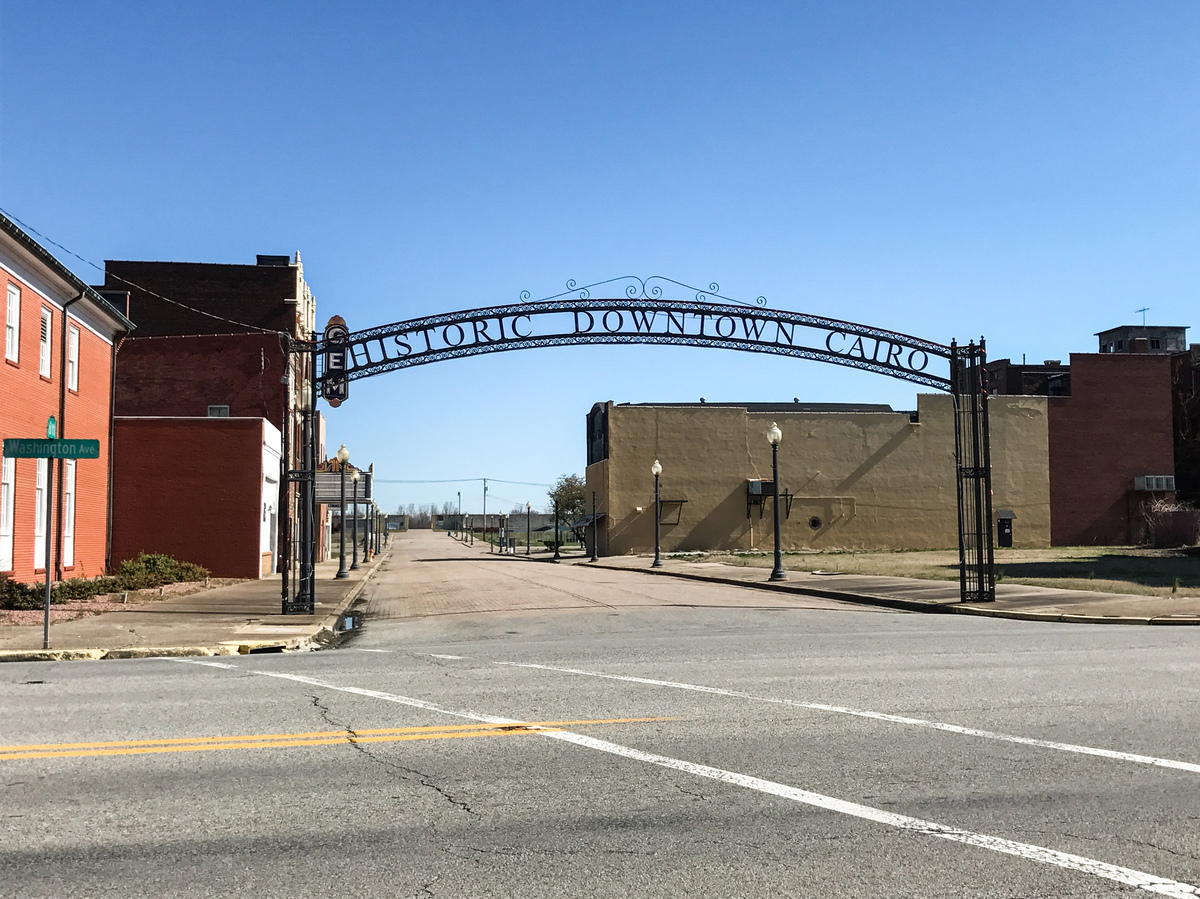
Cairo has lost more than half of its population in recent decades. Today, there are just under 3,000 people left.
Kirk Siegler/NPR Here, at the windy confluence of the Mississippi and Ohio rivers, it feels more southern than Midwest when you arrive at the old river port and factory town of Cairo, once made famous in Mark Twain's The Adventures of Huckleberry Finn.
But Twain might not recognize Cairo today.
"People come through Cairo and say 'wow'," says Phillip Matthews, a pastor and community activist.
In the last three decades, his hometown lost half its population. Alexander County is not only the poorest county in Illinois; it's also one of the fastest depopulating counties in the United States.
In Cairo, weeds creep up through the cracks in the old brick streets. Whole city blocks are condemned.
"I've watched for 40 years this city decline," Matthews says, on a recent tour.
Nature is taking over at the abandoned lot that used to house Cairo's largest employer, the Burkart Foam company. It closed more than a decade ago. More recently, the paper mill just across the river in Kentucky closed. More people moved out. In December of 2015, the only grocery store closed soon followed by the gas station.
Tyrone Coleman, Cairo's mayor, says the town is well positioned to take advantage of the expected increased barge traffic due to the Panama Canal expansion. After all, it's what put the city on the map in the 1800s.
"Strategically, geographically, this is one of the most untapped resource areas in the country," Coleman says.
Lately some state lawmakers have made renewed commitments. In a statement, Gov. Bruce Rauner's office says he is working to make Cairo and other small Illinois towns competitive. But in Cairo, that's a tough task.
No comments:
Post a Comment